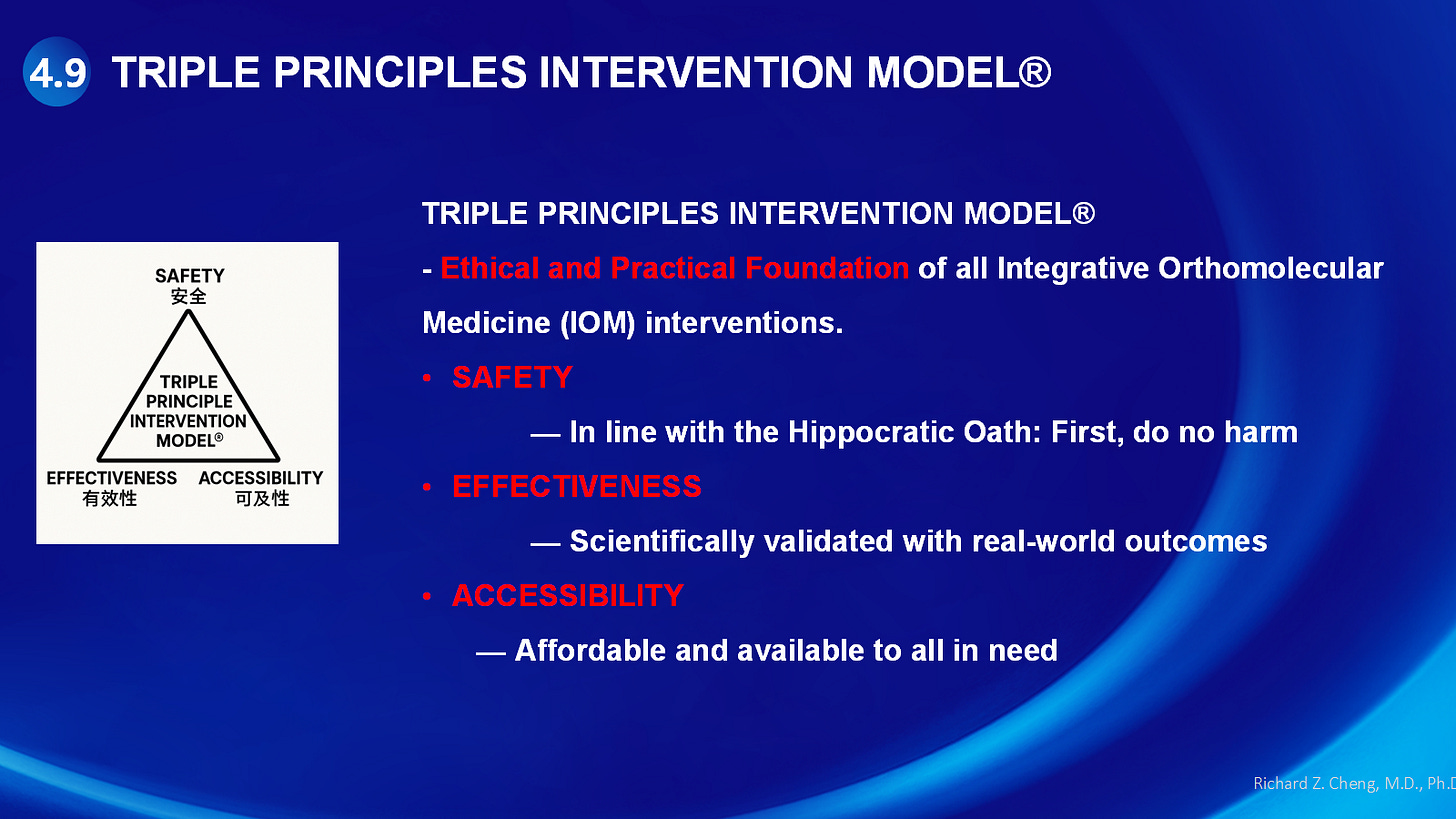We’ve received quite a few comments and questions lately about DMSO — so I thought I’d share where I stand and what I discovered.
World runs on money (unfortunately). Life runs on energy (mitochondria). I won’t risk mine on DMSO.
“The Double-Edged Sword of DMSO: Healing Agent or Mitochondrial Damager?” (orthomolecular.org)
Over the years, I’ve been interested in DMSO too, and I was preparing to incorporate it into my practice. But as always, before adding anything new, I perform a deep dive into the science and safety. I also evaluate new therapies through my Triple Principle Intervention Model™:
What surprised me in the literature is that DMSO becomes a mitochondrial toxin at higher doses. The article itself discusses how at ≥ 1% concentrations, DMSO may cause mitochondrial swelling, loss of membrane potential, increased ROS, and even apoptosis. (orthomolecular.org)
Given that mitochondria are arguably the most important subcellular organelles in our bodies — the engines of energy, signaling, and cellular resilience — I refuse to use anything that may damage them. Life runs on mitochondria — that’s as basic as it gets.
I remain unconvinced that DMSO offers unique or irreplaceable benefits for me (or my patients) that justify risking mitochondrial integrity. So, for now, I will not adopt DMSO into my toolkit.
To me, it’s not a matter of being “anti-innovative.” It’s a matter of principle, discipline, and prioritizing the foundational biology. If someone can convincingly show safe dose ranges or mitochondria-sparing protocols that deliver clinically meaningful benefits, I’ll reconsider. Until then, I’ll stick with modalities whose benefit:risk is cleaner and more certain.
About the Author
Richard Z. Cheng, M.D., Ph.D. – Editor-in-Chief, Orthomolecular Medicine News Service
Dr. Cheng is a U.S.-based, NIH-trained, board-certified physician specializing in integrative cancer therapy, orthomolecular medicine, functional & anti-aging medicine. He maintains active practices in both the United States and China.
A Fellow of the American Academy of Anti-Aging Medicine and a Hall of Fame inductee of the International Society for Orthomolecular Medicine, Dr. Cheng is a leading advocate for nutrition-based, root-cause health strategies. He also serves as an expert reviewer for the South Carolina Board of Medical Examiners, and co-founded both the China Low Carb Medicine Alliance and the Society of International Metabolic Oncology.
Dr. Cheng offers online Integrative Orthomolecular Medicine consultation services.
📰 Follow his latest insights on Substack: https://substack.com/@rzchengmd


Thank you Dr Cheng for your article on DMSO. I tried it recently for my pulmonary fibrosis. I did not do well on it. I stopped taking it about 1 week ago. My clinical experience and your excellent article indicate that stopping DMSO was the right decision. - Dr. John M
Glad you liked the article. There are many other orthomolecular nutrients one can use, I don't see why one has to use DMSO.
When DMSO is put into the body, because of how easily it travels through everything, it rapidly dilutes. All of the in vivo studies I've come across where it caused issue for living organisms resulted from it being directly injected an area (thereby making it possible to achieve a high concentration), and even with those, the results are very inconsistent (as in many instances harm does not occur). Conversely, a lot of people who take DMSO report an enhancement of energy and numerous mechanisms of mitochondrial protection exist with it.